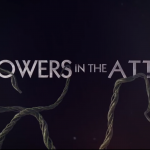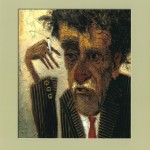Each week in Eat Your Vegetables, Carissa Smith shares the benefit and appeal of some more high-brow culture we should be consuming.
The release of a new film version of Jane Eyre makes this a perfect time to reread—or encounter for the first time—Charlotte Brontë’s 1847 novel of a “plain” governess who asserts her right to love and be loved. And I speak as someone who doesn’t really like Jane Eyre—or anything written by any Brontë—but who has developed an appreciation for it through the readings of others.
Part of the reason Jane Eyre never really appealed to me was that it was initially billed to me by a friend, when we were both in high school, as “so romantic.” This was never a big selling point for me, but my friend insisted that I read it anyway. I spent most of the book wanting to kick Mr. Rochester—and, by extension, Jane, for not kicking Mr. Rochester herself. Then there was the novel’s relentless lack of humor. The only good bits were the Gothic elements, especially the . . . well, I won’t say what, because I have a long track record of spoiling the plot of Jane Eyre for people (in large part, I assigned it in my Literary Criticism class so that I could talk about certain plot points freely without spoiling the uninitiated).
Jane Eyre as romance never worked for me. However, my students have convinced me to appreciate it as an expression of evangelical confidence in the believer’s right to interpret God’s will for her own life. Many of my students resonated with the part of the novel in which a certain character tries to convince Jane that it is her calling to be a missionary’s wife in India, and that any resistance to this path is selfish disobedience. This character uses scripture repeatedly in his guilt trips against Jane and tells her that he is praying for her—the ultimate tool of the manipulative Christian—because her spirit is willing, but her flesh is weak. To this, Jane replies, “My spirit is willing to do what it right; and my flesh, I hope, is strong enough to accomplish the will of Heaven, when once that will is distinctly known to me. “
Jane stands her ground against spiritual manipulation, instead waiting to hear directly from God. As it turns out, God does use a supernatural occurrence to make his will known to Jane, and that will is very different from that suggested for her by others.
The question of discerning God’s will is, of course, a complex one, but few are the novels that even begin to address it. The Jane Eyre that is about spiritual discernment is far more interesting than the swooning-on-the-moors Jane Eyre, and I’m grateful to my students for introducing me to this Jane.
My suspicion is that the new film will gloss over the discernment theme in Jane Eyre, though it does apparently give more screen time than previous films to the character who claims to know God’s will for Jane. The movie may not be opening outside of New York and Los Angeles for a while—I know it’s not opening in Charleston for another month—but that gives you plenty of time to read the novel beforehand. If you’re into audiobooks, the free download of Jane Eyre on librivox.org is decently read (with a faux British accent). And, once you’ve read Jane Eyre, you can then start in on Jasper Fforde’s hilarious novel The Eyre Affair, which supplies all the humor that the original lacks.











